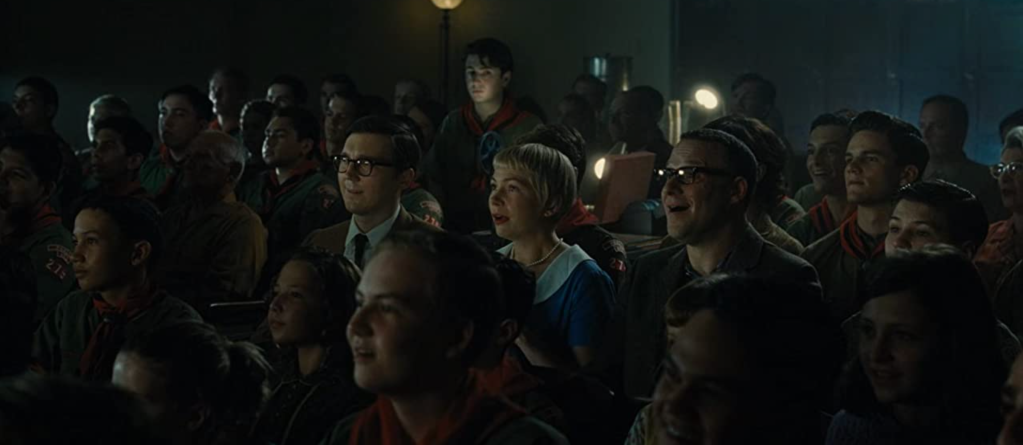Studios tend to save some of their best films for the end of the year. They want them fresh on voters’ minds come awards season. With only one weekend left in the year and four major films to review, we’ve decided to cover them all in one place. Special thanks to Price St. Clair for contributing a review of Glass Onion: A Knives Out Mystery, which I, alas, have not seen yet.
Avatar: The Way of Water
Bro you would not believe what a movie Avatar: The Way of Water is bro, it’s terrible bro, you’ve got to skip it bro.
Imagine that sentence stretched out over three hours—“bro” this and “bro” that—throw in some blue cat people, an annoying human boy named Spider, a teenage girl voiced by a 73-year-old, and a society of peace-loving whales who learn that even though violence against your enemies doesn’t always work out it’s almost always a good idea, and you’ve got the bizarre, unnecessary, and unasked-for sequel to 2009’s Avatar. James Cameron turning what is essentially Dances With Wolves but with aliens into a movie that earned over a billion dollars could have been a fluke. Him doing the exact same thing for a second time? Well, that just reflects badly on the human race. I’m starting to see why Jake was so willing to join the Na’vi.
Glass Onion: A Knives Out Mystery
Netflix released Glass Onion, the sequel to the 2019 mystery film Knives Out, just in time for holiday viewing. The movie was just as fun as its predecessor. Though one doesn’t need to have seen the first film to appreciate the second, they share some key ingredients: strong acting, classic murder-mystery twists and turns, and lighthearted satire of politics and culture.
In the early, cloth-mask days of the COVID pandemic, eccentric billionaire Miles Bron (Edward Norton) invites his inner circle of “disruptors”—including the governor of Connecticut, a men’s-rights YouTuber, a former supermodel, and a research scientist—to his private Greek island for a weekend getaway involving a murder mystery game. Inevitably, actual murder occurs, and the presence on the island of private detective Benoit Blanc (Daniel Craig)—who was presumably forwarded an invitation as a joke—as well as Bron’s ousted former business partner Andi Brand (Janelle Monáe) adds intrigue.
The movie doesn’t impart novel moral lessons, and aspects of the acting and plot are over the top—where in the world did Benoit Blanc’s accent come from?—but that’s kind of the point. Absorbing, entertaining, comedic, and ultimately satisfying to viewers with a thirst for justice, Glass Onion is an excellent choice.
Babylon
I wanted to like Babylon. I’m a big fan of two of director Damien Chazelle’s previous films, La La Land and First Man—I have not seen Whiplash but I’ve heard it’s good too—and I love old Hollywood. Chazelle directing a 1920s-set film about the film world transitioning from silent movies to talkies, with A-list stars and glamor out the wazoo, should have been right up my alley. Instead, I found myself alternately disgusted and disappointed. Chazelle has apparently decided he wants to be treated as a “serious” director, and his idea of what that looks like involves endless graphic scenes of defecation, urination, and fetish content. The shock value isn’t—and I’d argue couldn’t be—justified narratively, and the story that exists underneath it is too busy to be very good. The stars are great—particularly Brad Pitt—but Chazelle seems too interested in showing us everything he can get away with in an R rated film to bother providing the audience with an interesting plot. If you want a film on the same subject but don’t want to see a man covered in elephant poop in the first five minutes, check out Singin’ in the Rain or The Artist.
The Fabelmans
Like Babylon, The Fabelmans is a movie about the movies. Steven Spielberg’s latest is loosely inspired by his own life, and follows Sammy Fabelman (Gabriel LaBelle), an aspiring filmmaker growing up in the 1950s and 1960s. It’s a poignant look at the beauty of cinematic storytelling and the emotional weight of devoting your life to art. It’s also a semi-autobiographical look at the life of one of the most influential directors in the history of film. It’s sad and it’s sweet, and in the end it’s heartwarming. It will make you cry and it will make you laugh—just like a movie about the power of movies should. (One point of criticism: The film equates Sammy pursuing his dream no matter the cost to his mother pursuing an adulterous affair that tears apart her family. In a positive way. “You don’t owe your life to anyone” is a terrible piece of advice.)










Please note that we at The Dispatch hold ourselves, our work, and our commenters to a higher standard than other places on the internet. We welcome comments that foster genuine debate or discussion—including comments critical of us or our work—but responses that include ad hominem attacks on fellow Dispatch members or are intended to stoke fear and anger may be moderated.